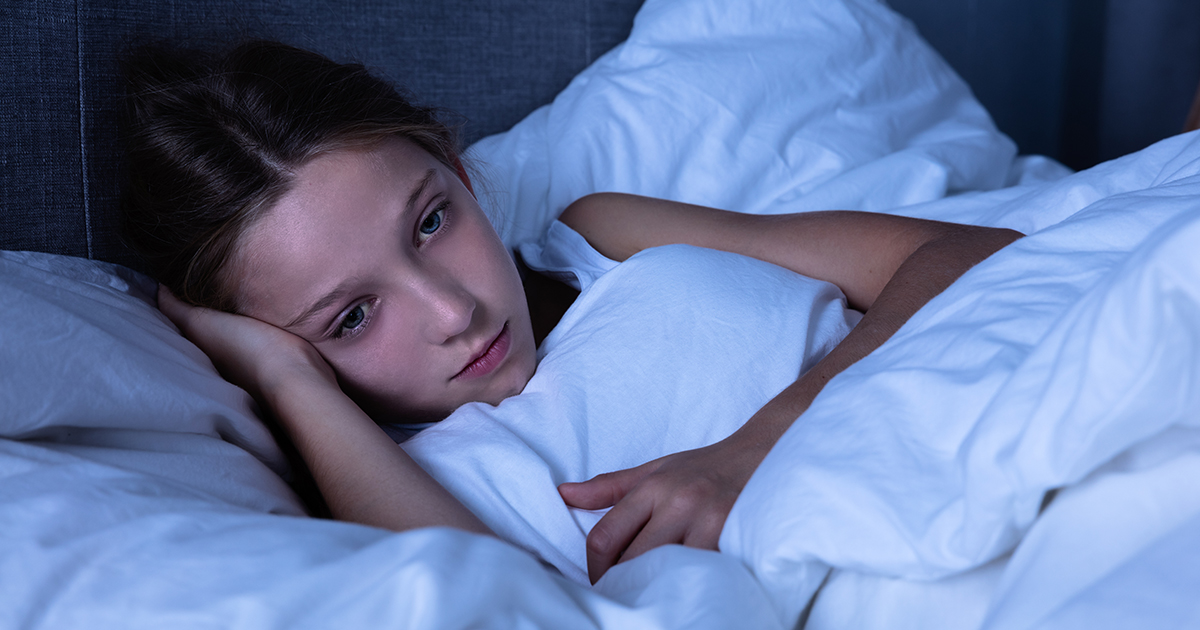 Sleep is essential to a child’s health. Children who suffer from staying or falling asleep can be more at risk for future diseases. Your child’s demeanor may change, and you may see a slip in academic performance. This occurs because a lack of sufficient sleep causes irritability and memory and retention issues that make learning difficult. Sleep disorders can also compromise the immune system, making it more likely for your child to get sick and more difficult for them to fight off illnesses. If left untreated, sleep disorders in children, such as sleep apnea, can increase the risk of cardiovascular disease. Fortunately, there are a few things you can do to help improve sleep at home. If those techniques fail to solve your child’s sleeping issues, you should consider making an appointment to see a sleep specialist.
Sleep is essential to a child’s health. Children who suffer from staying or falling asleep can be more at risk for future diseases. Your child’s demeanor may change, and you may see a slip in academic performance. This occurs because a lack of sufficient sleep causes irritability and memory and retention issues that make learning difficult. Sleep disorders can also compromise the immune system, making it more likely for your child to get sick and more difficult for them to fight off illnesses. If left untreated, sleep disorders in children, such as sleep apnea, can increase the risk of cardiovascular disease. Fortunately, there are a few things you can do to help improve sleep at home. If those techniques fail to solve your child’s sleeping issues, you should consider making an appointment to see a sleep specialist.
Symptoms of Sleep Disorders in Children
- Frequent night terrors
- Snoring
- Disrupted breathing
- Irritability
- Excessive sleepiness
- Poor academic performance
What are common sleep disorders in children?
Obstructive Sleep Apnea
Obstructive sleep apnea is the most common type of sleep apnea. It occurs when the muscles in the throat relax and block the airway during sleep. This typically results in snoring and can also cause children to stop breathing intermittently while asleep, which is highly stressful for parents.
Sleepwalking/Nighttime Behaviors
Sleepwalking often has genetic causes, but it can also happen when a child is stressed, sleep-deprived, febrile, on certain medications, or has a neurological condition or migraine at the time. Sleepwalking can be dangerous and should be addressed immediately.
Insomnia
Insomnia in kids is just like insomnia in adults. It can be caused by other sleep disorders or by stress, asthma, depression, ADHD, autism, or other developmental conditions. Not getting enough sleep can affect health and quality of life.
Delayed Sleep Phase Syndrome
Your circadian rhythm tells your body when it’s time for bed and when it’s time to wake up. A child with delayed sleep phase syndrome will experience a delay in the body’s signaling for bedtime and wake time, causing him or her to stay up later and wake up later.
Hypersomnia
 There are uncommon genetic conditions such as narcolepsy that cause excessive daytime sleepiness. This condition often has other associated symptoms, but the sleepiness can significantly impair school performance. One of the most common causes of sleepiness is simply not getting enough sleep.
There are uncommon genetic conditions such as narcolepsy that cause excessive daytime sleepiness. This condition often has other associated symptoms, but the sleepiness can significantly impair school performance. One of the most common causes of sleepiness is simply not getting enough sleep.
Movement Disorders
Movement disorders cause arms and legs to move while the child is asleep. The movement is involuntary but disrupts sleep and can cause insomnia and fatigue. Promptly dealing with these disorders can help your child sleep better at night and perform better during the day.
How to Encourage Better Sleep
Start by establishing a solid bedtime routine. Follow the same schedule for evening hygiene, bedtime stories, etc., every night. This will help your child’s body and mind predict and prepare for sleep. Get rid of digital screens for the last couple of hours before bedtime. The light from screens is known to inhibit the production of the sleep hormone melatonin. If you limit screen time and implement a solid bedtime routine and still don’t see improvements in your child’s sleep patterns, it might be time for a sleep evaluation.
 Dr. Mark Reploeg is a sleep medicine and neurophysiology specialist. Dr. Reploeg treats a variety of sleep disorders for both adults and children, such as obstructive sleep apnea, narcolepsy, and restless leg syndrome.
Dr. Mark Reploeg is a sleep medicine and neurophysiology specialist. Dr. Reploeg treats a variety of sleep disorders for both adults and children, such as obstructive sleep apnea, narcolepsy, and restless leg syndrome.
To schedule an appointment, please call 541-754-1268.
